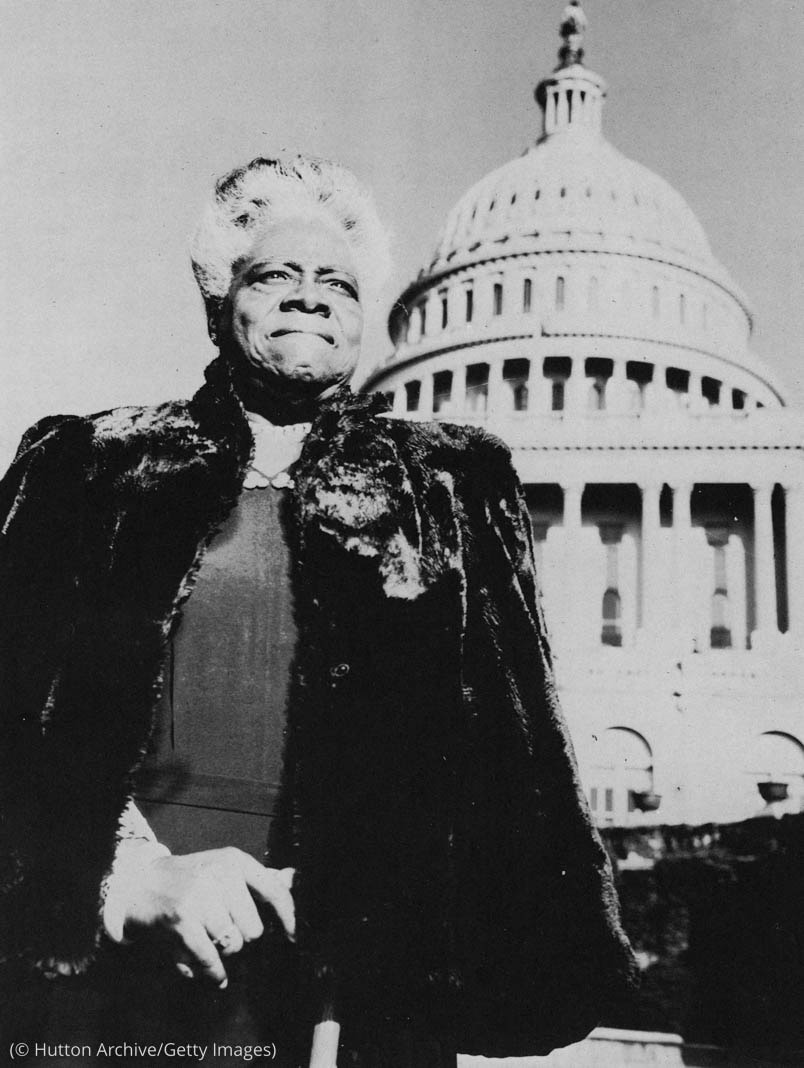Mary McLeod Bethune was an educator, an activist for civil rights and women’s rights, a college president and an adviser to U.S. presidents. Recently, a statue of her was unveiled in the rotunda of the U.S. Capitol.
She was born in Mayesville, South Carolina, a decade after the Civil War ended. Her parents had been enslaved.
She attended school in Mayesville, which was uncommon for Black Americans during the Reconstruction era. This opportunity set her on her path as an educator.
Bethune worked as a teacher in Georgia and South Carolina. After marrying Albertus Bethune in 1898, she opened a missionary school in Palatka, Florida. Over the next two decades, she opened a school for girls in Daytona Beach, Florida, and helped create Bethune-Cookman College. There she became the first Black woman college president, serving from 1931–1947.
Over the course of her life, Bethune served as the vice president of both the NAACP and the National Urban League, in addition to advising Presidents Calvin Coolidge and Herbert Hoover on education and youth employment.
As a friend of first lady Eleanor Roosevelt, Bethune attracted the attention of President Franklin D. Roosevelt, who asked her to serve as a special adviser for the National Youth Administration. From there, Bethune became a part of Roosevelt’s “Black Cabinet,” where she worked to create more opportunities for Black Americans under the New Deal.
During World War II, she worked with President Harry S. Truman to include Black women in the Women’s Auxiliary Army Corps and Women Accepted for Volunteer Emergency Service. Those Black women went on to serve in the European theater.
After retiring in the late 1940s to her home in Daytona Beach, Bethune died May 18, 1955. When the statue of Bethune was unveiled in July, she became the first Black American to have her statue donated as the gift of a state in the U.S. Capitol’s National Statuary Hall Collection.
The sculptor, Nilda Comas, is also the first Hispanic artist with a work in the National Statuary Hall collection in the Capitol. The statue depicts Bethune in an academic cap and gown, holding a black rose made from Spanish marble in her left hand and a walking stick — modeled on one owned by Roosevelt — in her right.
The base includes a quote from Bethune: “I invest in the human soul. It may be a diamond in the rough.”











